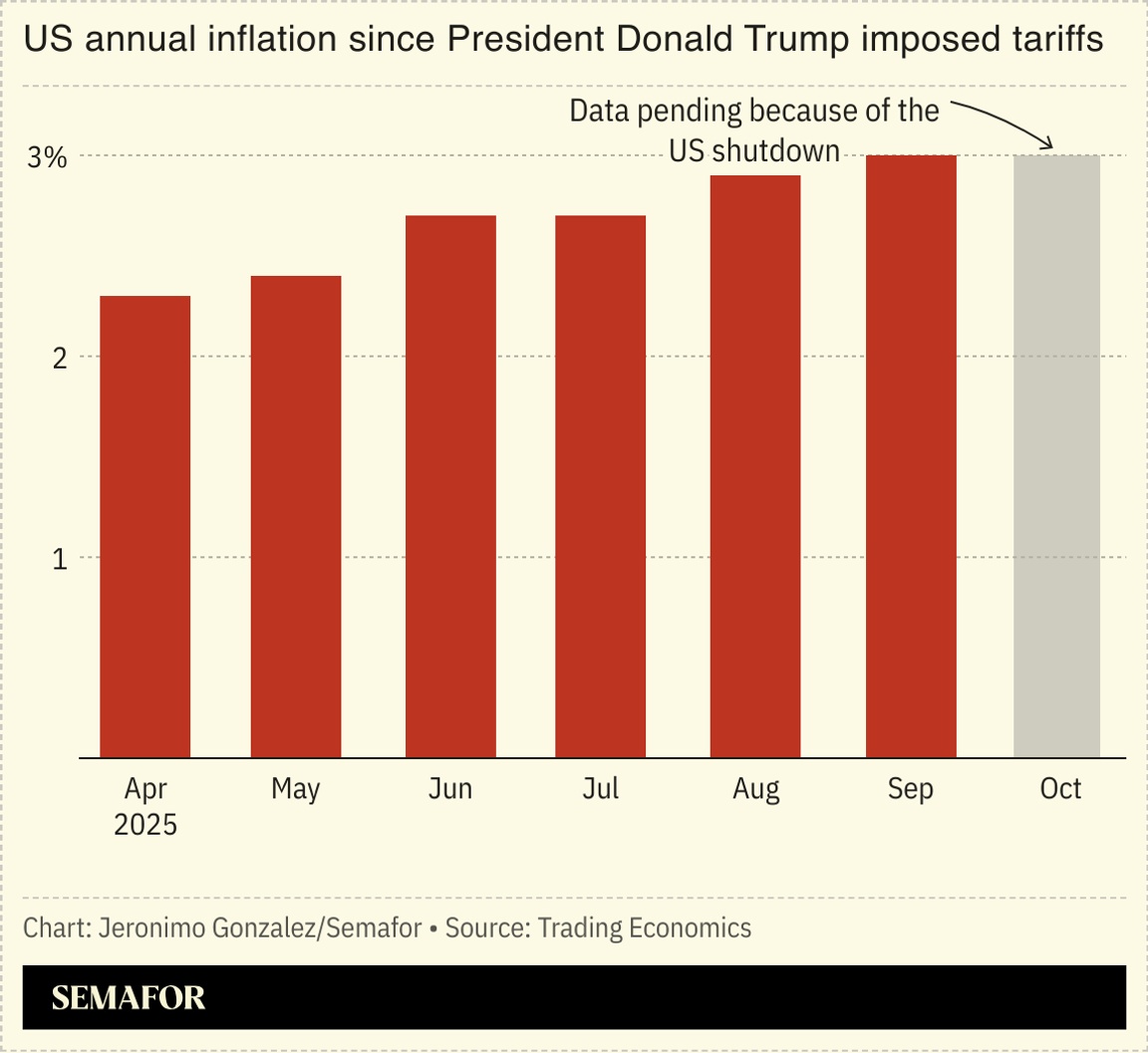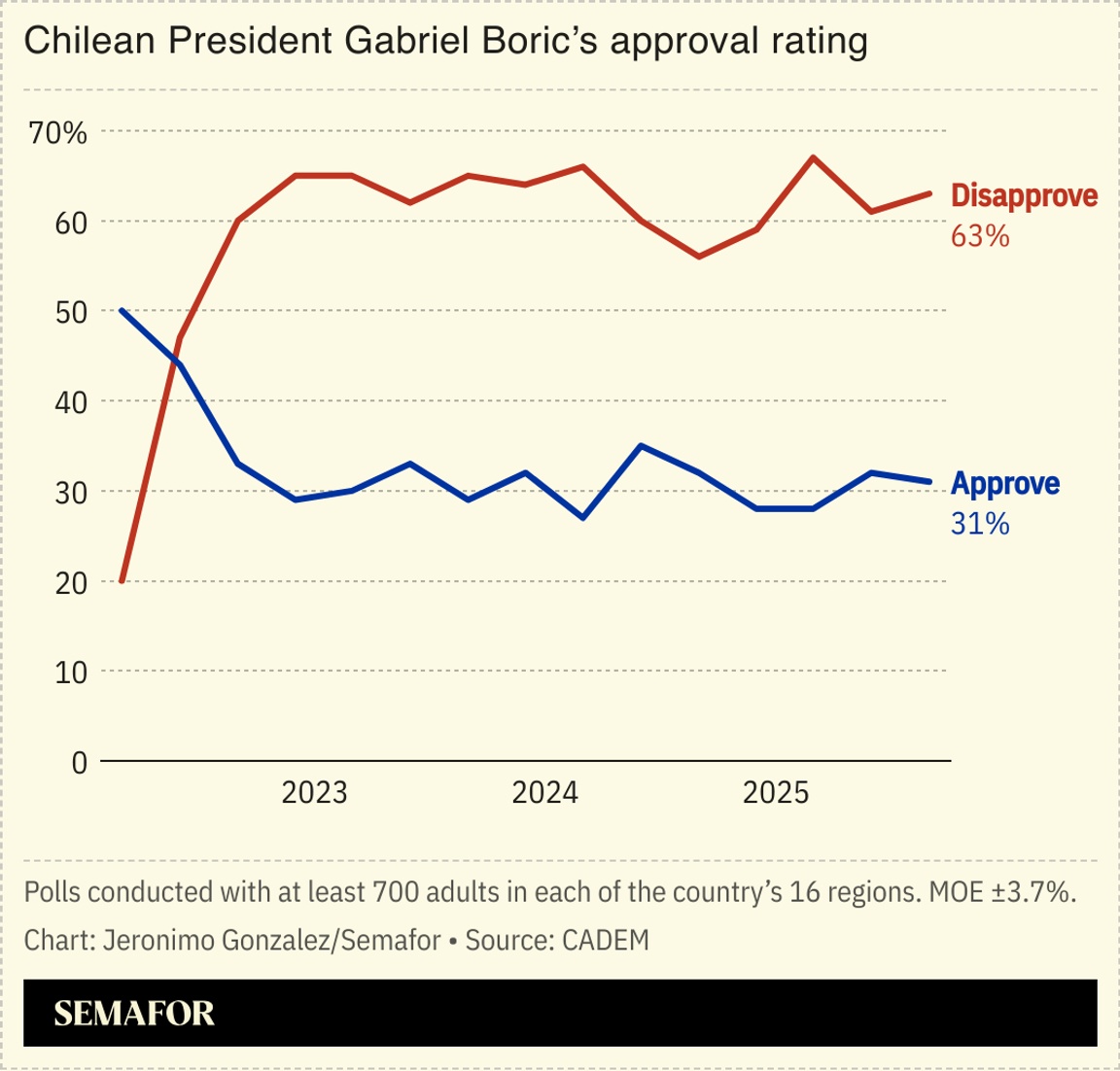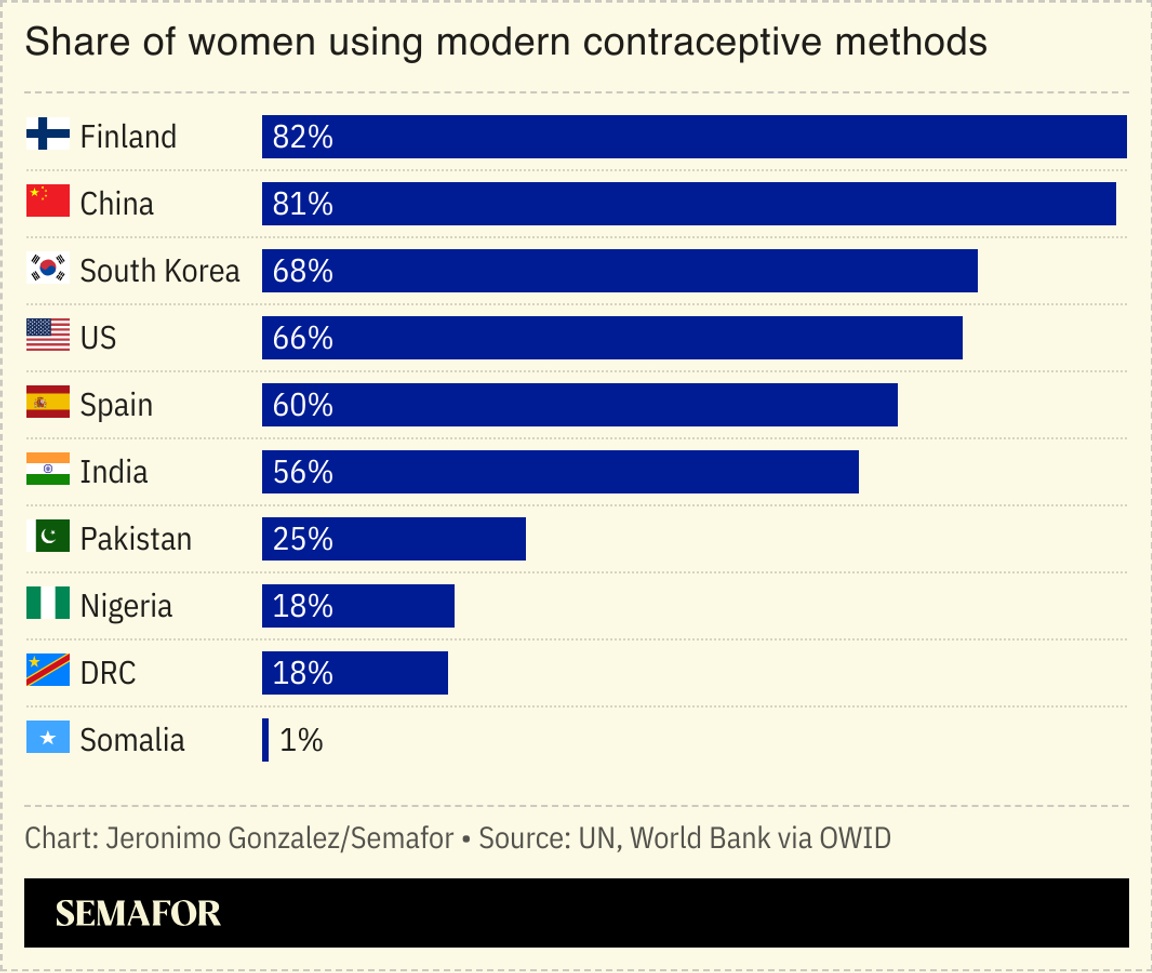| | A blow to the G20 as Xi cancels his attendance, corruption allegations hit close to Zelenskyy, and t͏ ͏ ͏ ͏ ͏ ͏ |
| |  | Flagship |  |
| |
|
The World Today |  - Xi plans to skip G20
- US arms sales to Taiwan
- Kyiv’s corruption problem
- China’s worrying econ data
- AI’s democratic role
- Global trade tensions ease
- Chile’s bellwether vote
- BBC apologizes to Trump
- ‘Mother of Plan B’ dies
- China’s micro-drama boom
 Russian and Ukrainian artists collaborate in Paris. |
|
Xi is latest leader to skip G20 |
 Maxim Shemetov/Pool/Reuters Maxim Shemetov/Pool/ReutersChina’s Xi Jinping became the latest global leader to say he will skip this month’s G20 meeting, a blow for South Africa as it prepares to host the bloc’s first summit on the continent. Xi’s decision means the gathering will lack the leaders of the world’s two biggest economies — US President Donald Trump announced this month that no American officials would attend over South Africa’s alleged mistreatment of its white population — while the presidents of Argentina and Mexico will also be missing, and Russia’s leader cannot attend because of an international arrest warrant. Xi, like other global leaders, has shifted to “home-court diplomacy,” Bloomberg reported, prioritizing bilateral meetings over multilateral institutions. |
|
US approves defense sales to Taiwan |
 Ann Wang/Reuters Ann Wang/ReutersWashington approved the first tranche of military sales to Taiwan since US President Donald Trump took office, raising tensions with Beijing that had only recently eased over the superpowers’ trade war. The $330 million package of aircraft parts comes with China unveiling a raft of new, advanced defense equipment, including a mammoth new aircraft carrier and trials of an amphibious “drone carrier”. Despite the impressive new hardware, China’s military appears to be falling short in other ways, though: An intensifying purge of several top commanders, ostensibly over widespread corruption, has raised questions over the armed forces’ capabilities. Yet, as a Taiwanese official admitted to the Financial Times, “the outcome of these purges is still completely unclear.” |
|
Corruption scandal batters Zelenskyy |
 Ukrainian Presidential Press Service/Handout via Reuters Ukrainian Presidential Press Service/Handout via ReutersA widening energy corruption scandal in Ukraine is undermining President Volodymyr Zelenskyy, as the country braces for a tough winter ahead in its war with Russia. Two government ministers have resigned over the scandal, and investigators allege that a former business partner of Zelenskyy’s plotted to skim $100 million. The issue is particularly sensitive because Russian attacks on energy infrastructure — including just this morning — regularly leave Ukrainians without power. Zelenskyy is also accused of curbing the independence of two key anti-corruption agencies, allegations he denies, and is now facing the greatest-ever challenge to his presidency, Radio Free Europe reported. The issue threatens Kyiv’s war effort as it seeks new funds from allies, while Moscow will likely keep targeting power facilities. |
|
China economic data falls short |
 New data raised fresh concerns about the health of China’s economy. Investment, manufacturing, and consumption figures all fell short of expectations, while a long-running property market downturn appeared to deepen, amplifying worries that the world’s second-biggest economy may miss its annual growth target of 5% this year. Beyond its trade disputes with the US, China is grappling with huge domestic economic challenges, including the risk of deflation, persistently high unemployment, and a mountain of debt. Policymakers have so far largely eschewed significant fiscal support, but with ambitious long-term economic growth targets, they may just be holding fire: “It will be a marathon, not a sprint,” ING’s China chief economist wrote. |
|
AI and the democracy debate |
 Marco Bello/Reuters Marco Bello/ReutersAI should not replace democracy, but be used to enhance it, the former Google CEO argued. Albania has handed government contract decisions to an AI minister, but this is “the wrong reflex,” Eric Schmidt wrote in The New York Times. AI can boost efficiency, but it cannot decide between competing values, the heart of democratic politics. Democracy is struggling, but turning to algorithms is the same impulse as turning to authoritarians in difficult times. Instead, Schmidt said, AI can overcome democracy’s logistical limitations. It can listen to millions of people and summarize priorities and concerns in a way that no human politician can. Taiwan already uses it like that: “Not to decide for us, but to help us govern ourselves better.” |
|
Global trade tensions ease |
 Washington announced the lifting of some tariffs on Latin American nations, while Seoul unveiled a raft of investments in the US, the latest signs of easing global trade ties. The White House said tariffs on some food imports from Argentina, Ecuador, El Salvador, and Guatemala would be scrapped, a move that comes as the Trump administration attempts to tackle rising inflation. A recent poll showed cost-of-living issues dominate US voters’ worries. Meanwhile, South Korea said it would invest $350 billion in the US, almost half of which will go to support President Donald Trump’s plan to boost American shipbuilding. In response, Washington agreed with Seoul to build nuclear-powered submarines. |
|
Chile vote tests LatAm leftists |
 Chilean voters head to the polls on Sunday in an election seen as a bellwether for leftist regimes in Latin America. The Communist Party’s Jeannette Jara and far-right candidate José Antonio Kast are leading polls, though neither is expected to secure the 50% of votes needed to avoid a second round. Analysis suggests Kast would win a run-off, heralding a marked departure from the current leftist government. Despite widespread optimism at the start of his term, incumbent Gabriel Boric has seen his popularity plummet amid rising crime and slowing economic growth, a poor omen for other “Pink Tide” leftist leaders, including in Brazil and Colombia, both of which face similar issues and which are holding elections in 2026. |
|
 Is television the final form of all media? Derek Thompson, the co-author of Abundance, podcaster, and Atlantic writer joins Mixed Signals to explain what he sees as the forces behind what Ben and Max keep observing: The way in which podcasts and other forms of journalism appear to be getting their largest audience in an endless, passive feed of videos first observed by analysts of 20th-century television. Derek discusses all that as well as his own turn toward independent media, and his personal pivot to video. Listen to the latest episode on Mixed Signals now. |
|
 Isabel Infantes/Reuters Isabel Infantes/ReutersThe BBC apologized to US President Donald Trump for misleadingly editing one of his speeches, but refused to pay compensation after he threatened to sue for $1 billion. The broadcaster’s leader resigned this week over a 2024 documentary featuring Trump’s remarks ahead of the Jan. 6, 2021 Capitol riots. The scandal may derail BBC efforts to expand in the US: It has significantly boosted its investments in the country, doubling its reporting team since 2022 and imposing a paywall this year, part of efforts to address a hefty budget shortfall. The Columbia Journalism Review noted that a key BBC selling point is its politically non-aligned image, and claims of ideological bias could damage that. |
|
 Sharon Camp, the driving force behind the emergency contraceptive pill Plan B, died aged 81. It was discovered in 1972 that high doses of contraceptives taken soon after unprotected sex could prevent pregnancy, but the treatment was mainly only used in cases of rape. Some European countries approved emergency contraception in the 1990s, but the effort was more controversial in the US. Camp, who herself nearly died after an illegal abortion, wanted to make reproductive medicine safer, and founded a pharmaceutical company to produce the drug, almost single-handedly winning regulatory approval despite political opposition. She hoped that Plan B would reduce polarization over reproductive health, because it prevents pregnancies rather than ending them: “It’s the anti-abortion pill,” she said in 2003. |
|
|